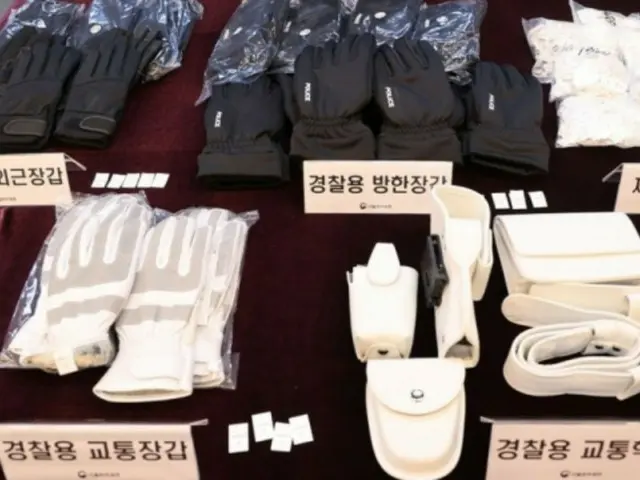It was discovered that the company had removed the bell and deceived the National Police Agency. The damage amounted to approximately 1.8 billion won (approximately 197 million yen). The representative of the company in question was referred to the prosecution on suspicion of violating the Foreign Trade Act.
In 2023, it was discovered that more than 120,000 pieces of Vietnamese-made workwear worth approximately 5.9 billion won were delivered to public institutions and local governments using the same method.
It was also revealed that 1.58 million pieces of work clothes imported from China and other countries were delivered to the government, public institutions and military units.
The damages from these two cases amounted to 67.8 billion won and 10 billion won, respectively.
On the 17th, the office of Park Suyeong, a member of the ruling party who is also a member of the National Assembly's Finance and Banking Committee, received a document from the customs office entitled "Crackdown on illegal deliveries of public procurement goods."
According to the data, a total of 50 cases were uncovered between 2020 and July of this year, with the total amount of the cases amounting to 354.1 billion won. By fiscal year, there were six cases in 2020 (approximately 63.4 billion won).
15 cases in 2021 (approx. 122.4 billion won), 11 cases in 2022 (approx. 124.4 billion won), 7 cases in 2023 (approx. 29.8 billion won), and 11 cases from January to July 2024 (approx. 14.1 billion won).
During the same period, the actual country of origin was China with 37 cases (70%), followed by Vietnam with 12 cases (23%). This year, cases of illegal deliveries have been uncovered not only by the National Police Agency but also in various places.
More than 7,304 "Chinese-made fire lanterns" worth about 1.6 billion won were illegally delivered to the fire department, with packaging changed or country of origin stickers removed.
It was also revealed that 300,000 pieces of clothing (worth about 18.6 billion won) that had been imported were delivered to public institutions while being disguised as Korean-made.
The cases have been consistently criticized for their impact on domestic small and medium-sized enterprises and their employees, as well as quality and safety issues.
The two organizations then linked import data from the Customs Service and procurement contract data obtained by the Procurement Agency to conduct joint crackdowns.
The problem is that the government's response is focused on "post-facto crackdowns." This is despite measures such as criminal punishment and fines being imposed on companies that have been caught.
This is one of the reasons why the same kind of cases are repeated every year. Although "public procurement bidding restrictions" and "return of undue profits" have been implemented for fraudulent suppliers, the prosecution decision has not been completed.
It has been pointed out that preventative measures are necessary because this is only possible after the procurement agency has confirmed the facts.
There have been only two cases of bid restrictions or refunds of unfair profits since the MOU was signed between the CSP and the PSA. The amount of the refunds in each case far outweighs the damages accumulated during the same period.
The figures are about 23.91 million won and 92.18 million won, respectively, which are far short of the actual figures. There are also voices calling for urgent improvements to be made to the Procurement Service's fair procurement management system, which is included in the MOU.
In relation to this, Rep. Park said, "Cases of low-cost foreign products being disguised as domestically produced and illegally delivered to public institutions are repeated every year. The Korea Customs Service and the Public Procurement Service are
"We should not enter into a pretense-like MOU," he said. "Through close communication, we need to cooperate to ensure that fair deliveries are made as a preventative measure, not as a means of exposing the issue after the fact."
It is necessary," he emphasized.
2024/10/18 07:20 KST
Copyrights(C) Herald wowkorea.jp 104

